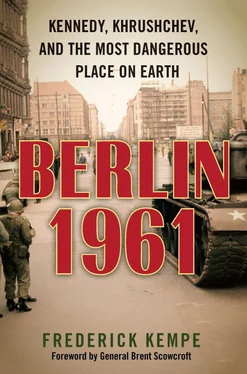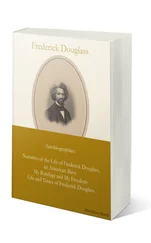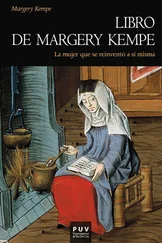NATO
Acheson’s role in
Berlin security guarantee
creation of
instructions in event of Berlin blockade
membership of West Germany
nuclear capability
Neue Zürcher Zeitung
Neues Deutschland
New York Times
on Checkpoint Charlie confrontation
on contrast between Kennedy and de Gaulle
on Johnson’s reception in Berlin
on Kennedy’s ambiguity
on Kennedy’s performance at Vienna Summit
on Kennedy’s first presidential press conference
on Khrushchev’s influence in U.S. presidential election (1960)
on racial tensions in U.S.
on U.S. involvement in Cuban invasion
on West Berlin riot
Newman, Larry
Newsweek
Nitze, Paul
Berlin deliberations and strategy
Berlin military response plan
on nuclear strategy
Nixon, Richard M.
as Adenauer’s choice for president
anticommunist stance
attack on Kennedy
election loss (1960)
Khrushchev’s role
Nixon–Kennedy debates
Norstad, Lauris
authorization to break through Wall
on conventional military buildup
NATO posting
Novotný Antonín
nuclear capability
Soviet Union
Cuban buildup
exaggerations
exercises in East Germany
improvements
striking range
testing
United States
call for disarmament
concealment of superiority
constant state of readiness
disclosure of details
hydrogen bomb development
NATO contingency plans
Polaris submarine
Single Integrated Operational Plan (SIOP-62)
test ban treaty proposal
testing
war planning
withdrawal of missiles from Turkey
O’Donnell, James
O’Donnell, Kenneth
Olmstead, Freeman B.
Owen, Henry
Paolella, Joseph
Paris Summit
Pech, Ottomar
Peng Zhen
Pervukhin, Mikhail
on difficulty and consequences of border closure
and Khrushchev’s approval of border closure
report on Vienna Summit
on Ulbricht’s border-control measures
Peter, Erich
Peters, Gerhard
Peters, Hans
Petrovna, Nina
Pike, Vern
at arrival of U.S. troops in Berlin
ascertainment of tanks’ origin
military escorts across border
observation of Wall construction
police supervision at Wall
and possibility of war
return of U.S. tanks to Checkpoint Charlie
Steinstücken outpost
Poppinga, Anneliese
Potsdam accord
Power, Thomas S. “Tommy,”
Powers, David
Powers, Francis Gary
Pravda
Raskin, Marcus
Rau, Karl Heinrich
Reston, James “Scotty,”
reunification of Germany
as Adenauer’s goal
Kennedy’s first mention of
Kennedy’s lack of commitment to
Khrushchev’s resistance to
realization of
skepticism about
Stalin on
U.S. policy on
West German hope for
RIAS radio
Roos, Albrecht Peter
Rostow, Walter
Rudenko, Roman
Rusk, Dean
Berlin position
on Brandt’s visit to Kennedy
on Checkpoint Charlie confrontation
on Clay’s border confrontations
fear of East German uprising
on frankness with West Germany
Gromyko meetings
on Kennedy’s conditional agreement to summit
on Kennedy’s Vienna Summit failure
on moral responsibility of nuclear first strike
on necessity of military buildup
Soviet policy deliberations
Sabolyk, Robert
Salinger, Pierre
as acquaintance of Bolshakov
delivery of Khrushchev’s request for meeting
Kennedy’s UN speech
media briefing on Vienna Summit
at start of Kennedy–Khrushchev private correspondence
Salisbury, Harrison
Saunders, Frank
Schärf, Adolf
Schlesinger, Arthur, Jr.
alternative to Acheson’s Berlin strategy
control of media
on Cuban invasion
Kissinger’s White House consultancy role
Schmidt, Marlene
Schorr, Daniel
Schumacher, Kurt
Schumann, Hans Conrad
Scowcroft, Brent
Seyr, Veronika
Sherman, Tony
Shuckburgh, Evelyn
Sidey, Hugh
Siekmann, Ida
Sindermann, Horst
Smirnov, Andrei
Smyser, William Richard
Sommer, Monika
Sonntag
Sorensen, Theodore “Ted” on proposal of nuclear first strike
speech on Berlin policy
speech on Soviet policy
stance on Berlin issue
Soviet Union
and arrival of U.S. troops in West Berlin
Checkpoint Charlie confrontation
China, assistance to
conventional-weapon superiority
economic dependence on West Germany
economic shortfalls
foreign policy priorities
military mobilization near Berlin
nuclear capability
Cuban buildup
exaggerations
exercises in East Germany
improvements
striking range
testing
See also Khrushchev, Nikita
occupation of Berlin
oil pipeline across East Germany
Palace of Congresses
Palace of Sports
Pathet Lao support
Potsdam accord
Siberian scientific center
space program
under Stalin
on UN directorate
U.S. trade agreements
U.S. U-2 spy plane, downing of
Spender, Stephen
Springer, Axel
Stalin, Joseph
Berlin blockade
devastation of Soviet Union
on German reunification
on government of East Germany
physical features
on repression in East Germany
Stearman, William Lloyd
Steinstücken operation
Stevenson, Adlai
on Acheson’s influence over Kennedy
on negotiation of Berlin issue
opinion of Khrushchev
position in Kennedy administration
Soviet backing in presidential bid
Stoph, Willi
Strauss, Franz Josef
Suburov, A. N.
Sukarno
Sulzberger, Cyrus L.
Symington, James
Tagesspiegel, Der
Taylor, Maxwell
Thompson, Llewellyn E. “Tommy,” Jr.
Berlin deliberations
and Checkpoint Charlie confrontation
discussions with Khrushchev on Berlin position
invitation for Kennedy–Khrushchev meeting
on Kennedy’s position at Vienna Summit
linking of Berlin and Cuban issues
on military buildup
role in Kennedy’s mistrust of Khrushchev
on Soviet policy
on Soviet release of captive U.S. airmen
Thompson, Jane
Thurow, Rudi
Time
on Adenauer’s Germany
on East German Miss Universe
on Kennedy’s poor leadership
on planning of nuclear attack
on Soviet Party Congress
on stability of Soviet Communist Party
Times (London)
Topping, Seymour
Travell, Janet
Trinka, Frank
Trivers, Howard
Troyanovsky, Oleg
Tyree, Thomas
Udall, Stewart
Ulbricht, Walter
border closure encroachment onto West Berlin territory
expansion of border inspections
first public mention of Wall
gathering of government officials during
initial discussions of
multiple sites
official statement on
plans and preparations
press conference on
single crossing point for Westerners
China mission to request assistance
on East German decline
farm collectivization
on Kennedy’s UN speech
Khrushchev, impatience with
at laborers’ gathering
military exercises
personality and physical features
repressive measures
resignation from office
socialist ideology
on Vienna Summit
on West Berlin freedoms
West Berlin’s Steinstücken enclave, threat to
on West German revanchism
United Nations
Kennedy’s address to
Читать дальше











